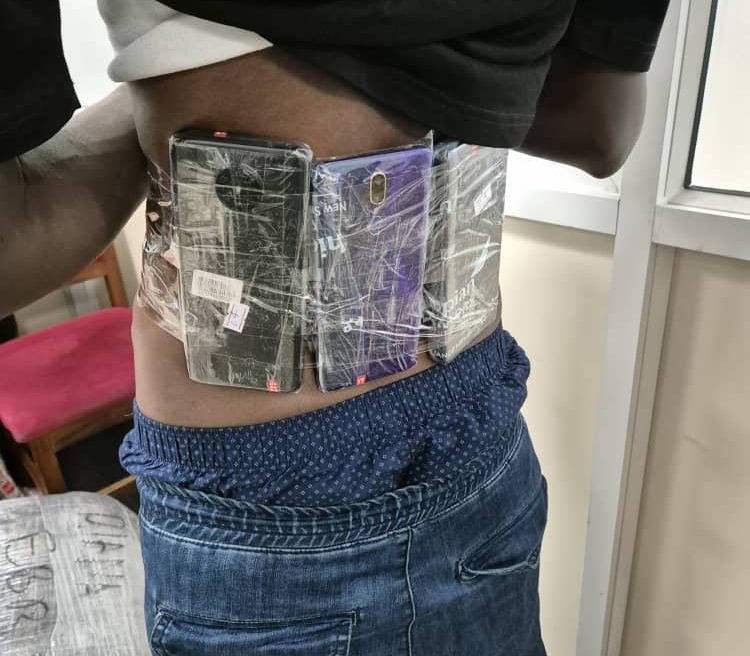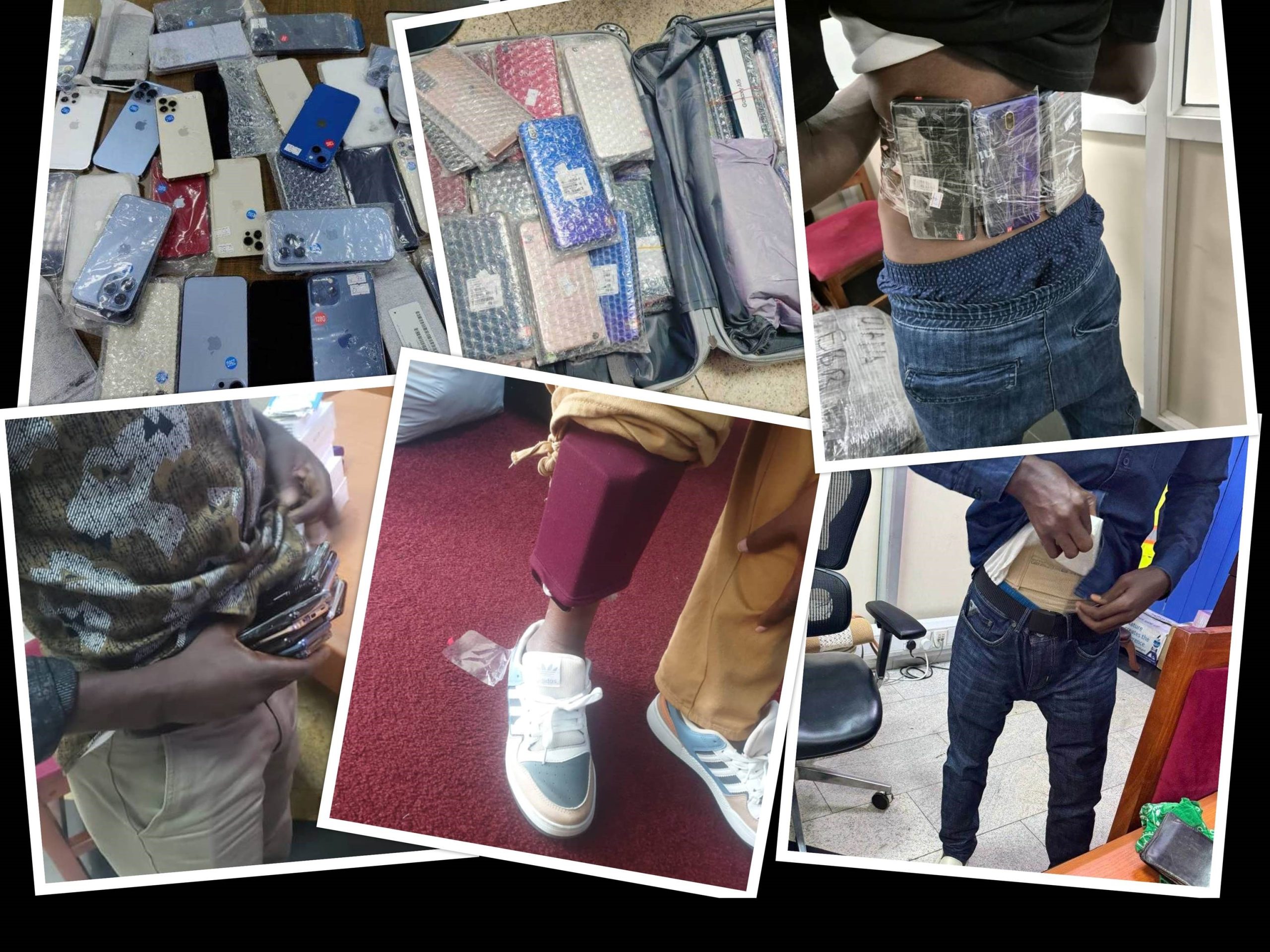
With heightened intelligence operations at Entebbe International Airport, desperation and ingenuity merged as smugglers devised concealment methods creative enough to qualify as a script for an escape from Alcatraz. For the reader that doesn’t relate, Alcatraz was an American prison that housed some of America’s most notorious offenders from 1934 to 1963, under what was considered the most secure and regimented conditions.
The smugglers the URA enforcement officers encountered in the last couple of weeks were prepared, like the Alcatraz prisoners to beat the odds and get their goods past the cargo scanner by hook or crook.
As the African proverb asserts, “The days of a thief are 40 but on the 39th day they are so confident they throw away their cooking stones.”
The activity at the arrivals’ terminal was akin to a movie scene. Passengers were repeatedly breaking bags on the conveyor belts and sticking their cargo into “hand carry luggage” and other nether regions. Some buried them deep in suitcases, mingled with personal belongings that would later be disguised as ordinary “Kadama” baggage.
Other smugglers conspired with airport trolley pushers and cleaners, hoping to slide their merchandise past customs in unnoticeable travel bags. Then there was the “sitya danger” ilk that threw caution to the wind and attempted to dash past the scanner like they had nothing on the Fast and Furious cast.
Armed with this intelligence, enforcement officers searched high and low and never gave up to counter the tricks of such conniving traders. Some traders even applied the usual age-old, desperate trick of strapping phones directly onto their bodies, hoping Customs was none the wiser.
Yet, one by one, these attempts crumbled under the vigilance of our Enforcement team.
In total, 781 pieces of smartphones and 108 pieces of button phones estimated to be worth USD 55,000, were seized in the operations; offense management is underway.
Some of the featuring brands included 258 pieces of assorted smart phones (Redmi, Oppo, Sony Xperia, Sharp Aquos; 95 pieces of assorted refurbished and used iPhones; 287 pieces of Samsung Galaxy Phones (both new and used); 10 pieces of used Google Pixel 7; 5 pieces of New Tecno Spark 20 Pro; 112 pieces of Infinix phones, 15pcs of Huawei Smart Phones; and 108pcs of Button Phones.
Mobile phones rank the highest smuggled item at Entebbe airport passenger terminal.
The increased interceptions at the airport have been enhanced by employing various compliance enforcement techniques such as profiling the passengers, using intelligence networks, CCTV cameras and Non-intrusive inspection scanners as compared to other porous borders.
The increase in phone smuggling is largely attributed to ignorance of values and taxes to be paid, and greed by the traders to persistently evade taxes on mobile phones.
Smartphones, like any other imports, are subjected to the importation guidelines as stipulated in the East Africa Community Customs Management Act (EACCMA) 2004, as amended part III, sections 45 and 46 of the same Act regarding passenger baggage clearance, valuation guidelines in section 122 and the 4th schedule of the EACCMA.
Mobile phones pay import duty of 10%, VAT of 18%, WHT of 6% and Infrastructural levy of 1.5%.
With such incidences, URA has improved its passenger profiling skills to easily identify all smugglers and also works with the other operators at the airport such as the security teams that man the CCTV cameras to gather relevant information at places where Customs has limited presence such as Departures, VIP section, and the Old Airport.
Concealment of phones with the aim to smuggle contravenes section 202 where penalty is 50% of the value while failure to declare the phones to a Customs officer contravenes sections 45 and 46 of the EACCMA and the penalty is handled according to section 209 of the EACCMA.
Even with the complex composition of the operations teams at the Airport, URA advises travellers to familiarise themselves with the Customs clearance procedures at the Airport and also heed to sensitization messages so that they are not caught up in customs offences that could result in legal actions against them.
By Priscilla Najjuma, Entebbe Customs, Additional reporting by Annet Nantongo





No Comments yet!